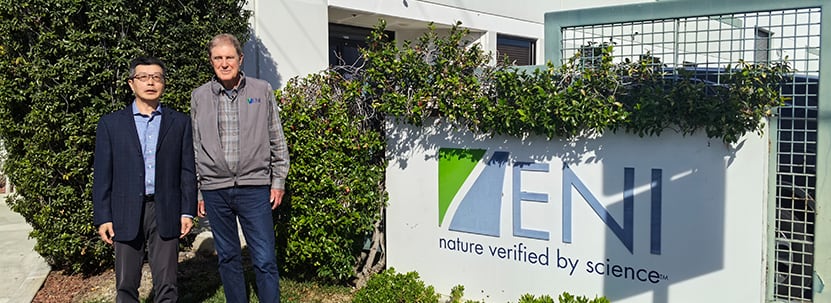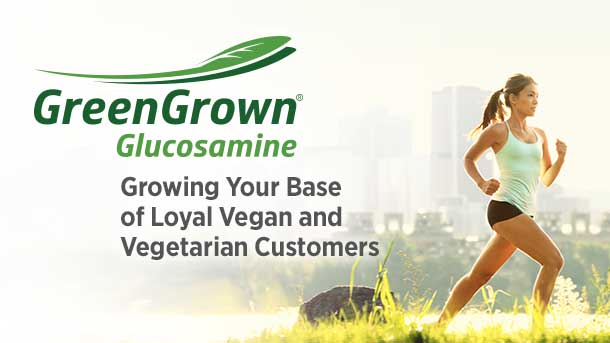In the fall of 2005 Cal Bewicke and Leo Liu began to lay the foundations of Ethical Naturals Inc.
ENI was a new company with a clear vision of what was needed in the botanical supply chain of the day. Over two decades the company has developed a portfolio of research supported branded ingredients and a track record of advocating for best practices in the nutraceuticals industry.
At the time ENI was launched, levels of adulteration in the US botanical market were rampant. Little or no testing took place, and the testing that was done generally lacked the detail to detect even basic adulteration. It was sometimes described as the wild west of botanicals.
ENI was founded to counter these trends and to supply premium standardized botanical extracts with guaranteed integrity: Products that were passed through a program that defined identity, potency and freedom from contamination.
ENI established the rigorous ProfileProven quality assurance program and testing laboratory and the company was built on the founding principle of ‘Nature Verified by Science’, which continues to guide the mission and decisions it makes today.
Quality assurance and testing laboratory
The first step was to build a high-quality testing laboratory run by a Lab Director skilled in working with botanicals. Today, this in-house lab continues to develop its capabilities with consistently updated equipment and a growing library of data and experience. Through this lab and the work that it has done, ENI has learned that botanical testing isn’t a fixed process, it must evolve continuously to meet the new challenges that arise.
Ginkgo biloba extracts: Where the quality control search began
In 2005, ginkgo biloba extracts claiming 24% flavone glycosides filled the market for $30 to $40 per kg, a low number, in fact, far below true production costs.¹ ENI’s first step was to address this one issue directly.
Ginkgo biloba extracts are used worldwide to improve brain performance, specifically for enhancement of memory and concentration. The extracts are generally standardized to contain 22% to 27% of the flavonol glycosides quercitin, kaempferol and isorhamnetin.
These compounds occur in ginkgo leaf in small quantities, and though not directly correlated to the bioactivity of the extracts they were established as accurate markers of potency. However, a primary source of adulteration occurred when manufacturers began to add cheaper sources of these compounds to maintain the measured potency while reducing cost. Methods were developed to identify extracts that were artificially inflated in potency, using these outside sources of flavonoids.¹
To address this issue, ENI’s Quality Control (QC) Director, Lora Xiong began to work with American Herbal Pharmacopoeia (AHP) and Eurofins Labs to produce the substantial ginkgo Brand QC Report.¹ This report included detailed testing of 20 branded ginkgo products and raw material samples, with a full review by noted herbal expert Roy Upton of American Herbal Pharmacopoeia (AHP). Only six samples of the 20 passed the detailed screening and potency tests by Eurofins, which spurred the industry to improve ginkgo product quality testing practices.
This report was just the first step. ENI has continued to work on the ongoing quality issues in botanical extracts, and advocated for best practices. A number of its key findings and methods have been shared with the botanical industry and its publications.
Building the supply chain partnerships that lead to today
ENI has never been a trading company, shopping around for the lowest price; it has carefully chosen and audited the very best manufacturers in China, Europe and the US, working with them on development of quality specifications and long-term supply stability.
In this way, its suppliers have essentially become working partners to overcome the challenges of raw material shortages, shipping outages and now tariffs.
Benefits are shared by both sides and, most importantly, passed on to its valued customer base. The current tariff situation is a good example in which these partnerships have made a big difference to ENI and its customers. Working together, they built large inventories before tariffs hit and then developed larger order cycles that resulted in economies of scale in both manufacturing and shipping.
This has allowed both ENI and its manufacturers to make price structure changes that minimize the impact of tariffs, with no reduction in ‘on-time’ shipping or quality. These are the benefits of supply and customer partnerships – in good times and tough times.
A solar powered facility for distribution and manufacturing
As ENI established a strong base of business in the supply of botanical extracts, it became clear to ENI CEO, Bewicke and Co-Founder, Liu that there would be many benefits to both ENI and its customers in supplying products both in bulk and in finished, private label form.

Using Liu’s previous experience in supplement manufacturing, they built-out a facility for blending, encapsulating and bottling. The facility was then Current Good Manufacturing Practices (cGMP) Certified by National Science Foundation (NSF) and remains so to this day. This capability provides a dynamic and direct service to many ENI customers, the final step in assuring that ENI’s quality remains true ‘from field to finished product’.
They then installed solar power. Liu, who directs operation of the facility, states: “The private label ability has been very useful to our customers, but production systems use a lot of power, so solar was a clear choice for us. It’s made a big difference in our energy bills and is right in-line with our environmental goals.”
Proprietary products and clinical studies
As ENI grew in experience and outreach, the company expanded its horizons to include a range of proprietary products that have established strong positions in US and international markets. These include:
- GreenGrownglucosamine A vegetable source glucosamine produced by fermentation and protected by manufacturing and identity patents that assure 100% vegetable source.
- AlphaWave L-Theanine A unique source of purified L-Theanine with relaxation and mental acuity benefits supported by ENI’s three clinical studies.²⁻³ AlphaWave was recently approved by Australian Therapeutic Good Authority (TGA), and is now the only form of L-Theanine allowed to be sold for manufacturing in Australia.
- Cranberex cranberry extract High-level PACs tested by DMAC method and supported by studies from Rutgers University.
- Polyphenol-C Vitamin-C enhanced with fruit berry polyphenols, backed by studies for superior antioxidant support.
Teamwork: The core of successful supply chains
Close teamwork with both manufacturers and customers is what makes the supplies flow. But to both Bewicke and Liu, it’s the internal teamwork that’s really at the heart of the company’s accomplishments.
“The core members of our team have been with us since we founded the company and others for 12 years and more. That really means a lot. We’ve gone through easy and tough times together, and experienced successes and failures. You learn how to laugh and share the friendship. So many of the great ideas behind our company have been contributions from the members of our team,” says Bewicke.
ENI now has several clinical studies in progress with one scheduled for publication soon – stay tuned.
References
- Ethical Naturals. Ginkgo Biloba Extract: Brand QC Analytical Report.
- Evans, M.; et al. A Randomized, Triple-Blind, Placebo-Controlled, Crossover Study to Investigate the Efficacy of a Single Dose of AlphaWave® L-Theanine on Stress in a Healthy Adult Population. Neurol Ther 10, 1061–1078 (2021).
- Moulin, M.; et al. Safety and Efficacy of AlphaWave L-Theanine Supplementation for 28 Days in Healthy Adults with Moderate Stress: A Randomized, Double-Blind, Placebo-Controlled Trial. Neurol Ther. 2024; 13, 1135–1153.






